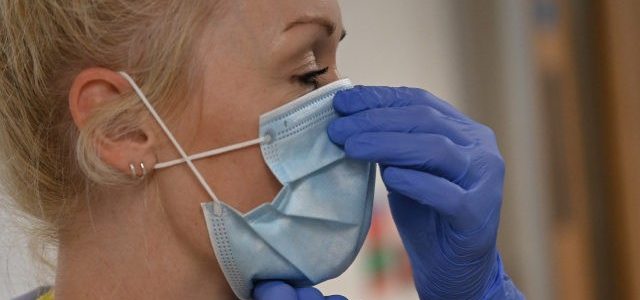Under the direction of the GOP Governor, the Vermont State Legislature passed a measure allowing local governments to impose their own mask requirements. Phil Scott passed this week a measure allowing local governments, almost two years after the outbreak, to impose their own requirements for masks.
The legislation passed the Senate 17-10 and the House 90-41. It allows municipalities to temporarily adopt their own mask regulations in the event of a surge in virus activity. It was opposed almost unanimously by GOP members and received some opposition from the left.
Scott urged lawmakers to follow his lead, even though he didn’t want to implement a statewide mandate for masks, despite being pushed by Democrat legislators. The governor described the legislation he supported in a November 15 letter addressed to the legislators.
First, only facial covering requirements must be made indoors in a municipality’s area (except for schools, which will remain under the control of the local school board) to address COVID-19. Second, each municipality must be able to enact, through the action of its governing body, a mandate for masks beginning Monday, November 29, 2021, or upon passage. Third, the authority and legislation to impose a local mandate for a mask shall expire on April 30, 2022. Fourth, the special session statute must direct the municipality’s governing body to review and vote on whether to extend or repeal the policy.
Sen. Pro Tem Becca Balint stated that they want to ensure that we keep local people safe, businesses safer, and if towns feel that one way to achieve that is through masking. Others, like Senator Randy Brock, think the measure will “setback the rate of compliance”, citing “division” and “divisiveness.”
A group of protestors reacted outside to the policy. They claim mandates for vaccines and masks are overreached by the government, and that decision-makers don’t listen to them.
Coronavirus data trackers in Vermont report a daily average of 369 cases per day or 59 per 100,000. The Vermont figures show a 17% increase in cases in the past 14 days. Yet, it boasts one of the highest vaccination rates at 73 percent.


